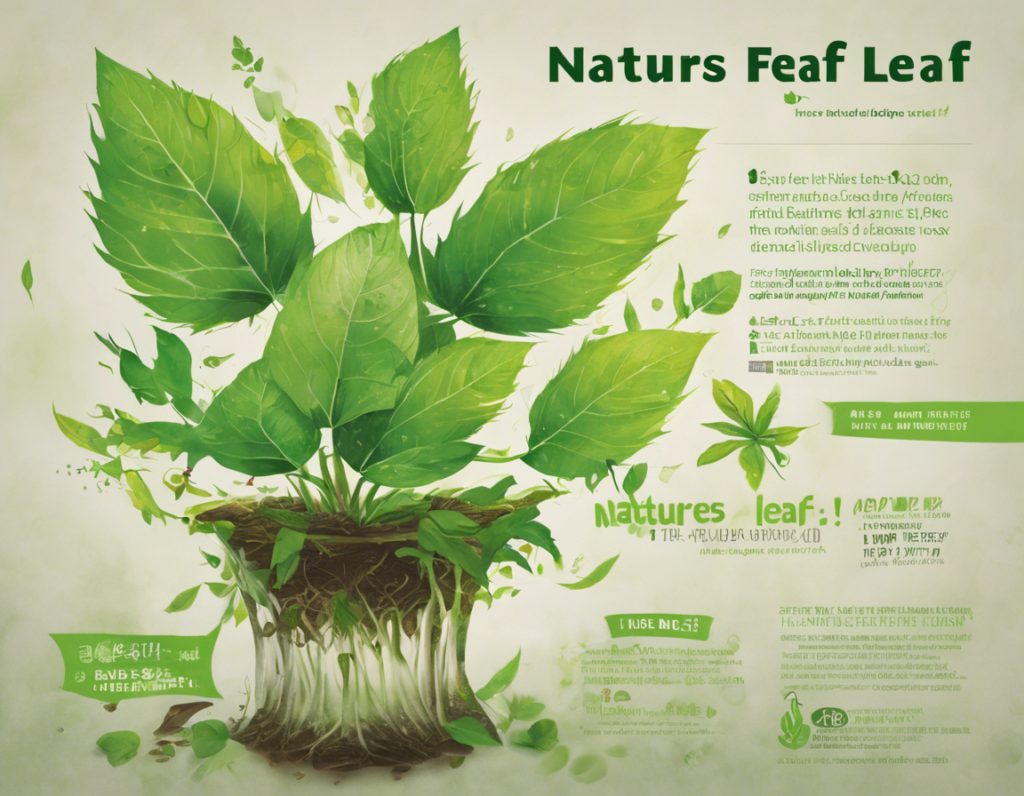Introduction
In an increasingly fast-paced and technology-dependent world, the importance of nature in promoting health and well-being cannot be overlooked. The concept of natures releaf revolves around harnessing the healing power of the natural world to improve mental, emotional, and physical health. Various research studies have shown the numerous benefits that spending time in nature can have on our overall well-being. From reducing stress and anxiety to boosting creativity and cognitive function, the healing properties of nature are vast and diverse. In this article, we will explore the different ways in which nature can positively impact our health and quality of life.
The Healing Power of Nature
-
Stress Reduction: One of the most well-known benefits of spending time in nature is its ability to reduce stress levels. The calming effect of natural environments, such as forests, parks, and beaches, can help lower cortisol levels and promote relaxation.
-
Improved Mental Health: Nature has a profound impact on mental health, with studies showing that spending time outdoors can reduce symptoms of depression and anxiety. The peace and tranquility of natural settings can provide a sense of calm and clarity to those struggling with mental health issues.
-
Enhanced Physical Health: In addition to mental health benefits, nature can also improve physical health. Activities such as hiking, biking, and gardening not only promote physical fitness but also offer exposure to fresh air and sunlight, which are essential for overall well-being.
-
Boosted Immunity: Research suggests that spending time in nature can strengthen the immune system. The phytoncides released by trees and plants have antimicrobial properties that can help ward off infections and illnesses.
-
Increased Creativity: Nature has been found to enhance creativity and problem-solving skills. A study published in the Journal of Experimental Psychology: Learning, Memory, and Cognition found that individuals who spent time in nature were better able to solve complex puzzles compared to those in urban environments.
Connecting with Nature
-
Forest Bathing: Originating in Japan, forest bathing, or shinrin-yoku, is a practice that involves immersing oneself in a natural environment to promote relaxation and stress relief. Forest bathing has gained popularity worldwide for its therapeutic effects on both the mind and body.
-
Outdoor Meditation: Meditating outdoors in a natural setting can be a powerful way to connect with nature and cultivate mindfulness. The sights, sounds, and scents of the outdoors can enhance the meditation experience and promote a sense of peace and tranquility.
-
Nature Walks: Something as simple as taking a leisurely walk in nature can have profound effects on our well-being. Whether in a local park, botanical garden, or nature reserve, a nature walk allows us to disconnect from the hustle and bustle of daily life and reconnect with the natural world.
-
Nature Retreats: For those looking to deepen their connection with nature, nature retreats offer a holistic experience of relaxation, rejuvenation, and self-discovery. These retreats often include activities such as yoga, mindfulness practices, and guided nature walks.
FAQs (Frequently Asked Questions)
- How much time should I spend in nature to experience its benefits?
-
While any amount of time spent in nature can be beneficial, aim for at least 2 hours per week to experience noticeable improvements in mood and well-being.
-
What are some ways to incorporate nature into a busy urban lifestyle?
-
Even in urban environments, you can connect with nature by visiting local parks, rooftop gardens, or indoor botanical gardens.
-
Can indoor plants provide similar benefits to spending time outdoors?
-
While indoor plants can improve air quality and mood, the benefits of spending time in natural outdoor environments are unique and more profound.
-
Are there specific types of nature that are more beneficial for health and well-being?
-
Research suggests that diverse natural environments, such as forests, coastlines, and mountains, each offer unique health benefits. Variety is key in experiencing the full spectrum of nature’s healing power.
-
Can children benefit from spending time in nature as well?
- Absolutely! Children can experience numerous benefits from spending time outdoors, including improved cognitive development, reduced stress, and enhanced creativity.
Conclusion
In conclusion, the healing power of nature is a profound and often untapped resource for improving our health and well-being. Whether through forest bathing, outdoor meditation, nature walks, or nature retreats, there are countless ways to connect with the natural world and reap its therapeutic benefits. By prioritizing time in nature and incorporating natures releaf into our daily lives, we can enhance our mental, emotional, and physical health in profound ways. Embracing nature as a source of healing and rejuvenation is not only beneficial for individuals but also for communities and society as a whole.
